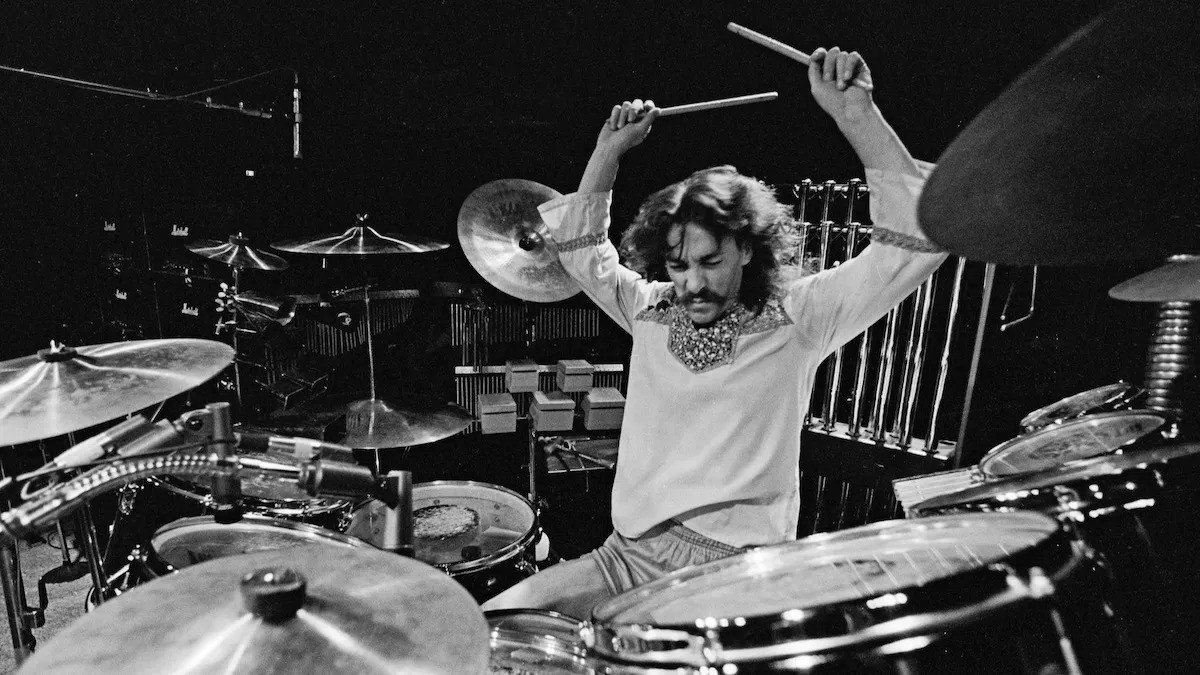Not every drummer aspires to be the world’s greatest musician. For every outstanding band that features a virtuoso percussionist behind the kit, there are just as many that can accomplish the same thing by providing a steady beat that propels the song along. Though Neil Peart believed one of his heroes became a drum god by accident, he was able to rise to the situation and become one of the greatest drummers of all time.
However, it didn’t seem like Peart would get a chance to perform in Rush when he was first trying out for bands. Even though both bands played blues-oriented rock & roll when they first started in Canada, Peart continued to perform with his old band, JR Flood, because Geddy Lee and Alex Lifeson already had John Rutsey behind the kit.
As time passed, it became clear that Rutsey’s style of rock music wasn’t going to work with the group as a whole. Rutsey left the band after their initial album, claiming he wanted to sound more like Bad Company. This allowed Peart to take over as the group’s chief songwriter on their record Fly By Night.
Apart from his drum idols such as Ginger Baker, Peart had a profound affection for the drum luminaries emerging from the jazz realm. While certain musicians, like Buddy Rich, could play the drums like a man possessed, none of his contemporaries could match the intensity with which Gene Krupa performed.
Later, Krupa’s approach was all over the place, with his ability to both lay down a rhythmic foundation when needed and scream away on the drums. This would serve as inspiration for the sounds of hard rock and heavy metal. Even though Peart admired Krupa’s drumming style, it would take him a few years to find his actual mentor.
Although Krupa isn’t regarded as a rock and roll icon, he was essentially the world’s mentor to Keith Moon of The Who. Moon transformed each song into a dynamic workout, deftly utilizing his drumkit to create stunning performances of Pete Townshend’s timeless tunes, such as “Won’t Get Fooled Again,” in contrast to the delicate sounds of jazz.
Even though Moon had years of expertise behind the drum kit, Peart believed that when he performed, a piece of his personality came out, “To me, he was the kind of drummer who did great things by accident rather than design. But the energy, expressiveness and innovation that he represented at the time was very important and great.”
Moon’s playing taught Peart a lot, although Peart’s dynamic approach was more accurate than that of most of his contemporaries. Even with a good measure of swing in his delivery, Peart often gave off the impression of a crazy scientist working behind the kit, playing tunes that sounded like endurance tests through and through.
Picking up where Moon left off, Peart combined his love of hard rock and jazz to play drumming which showcased his talent while supporting the music. While most rock drummers could maintain a consistent groove, Moon showed PEart that having a sense of force is something that cannot be compensated for just drum tuition.
